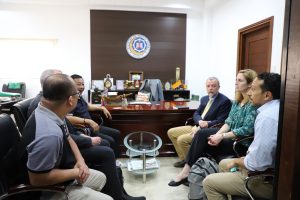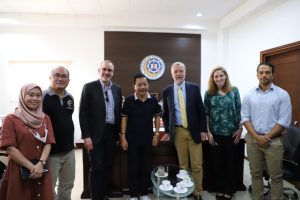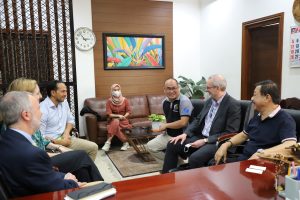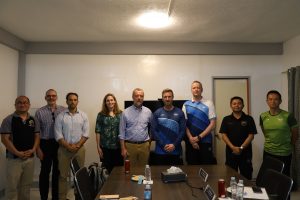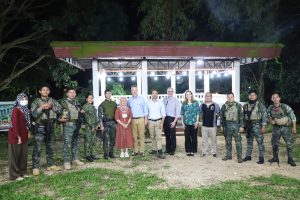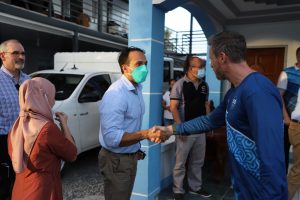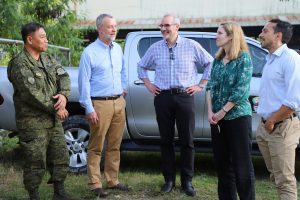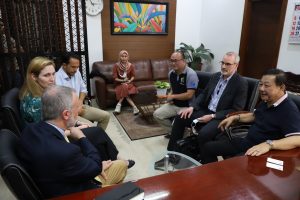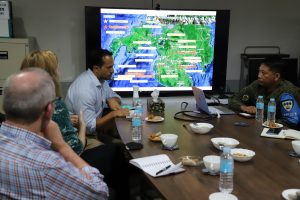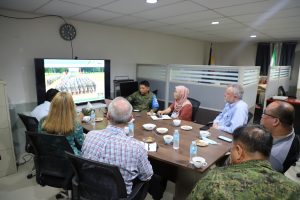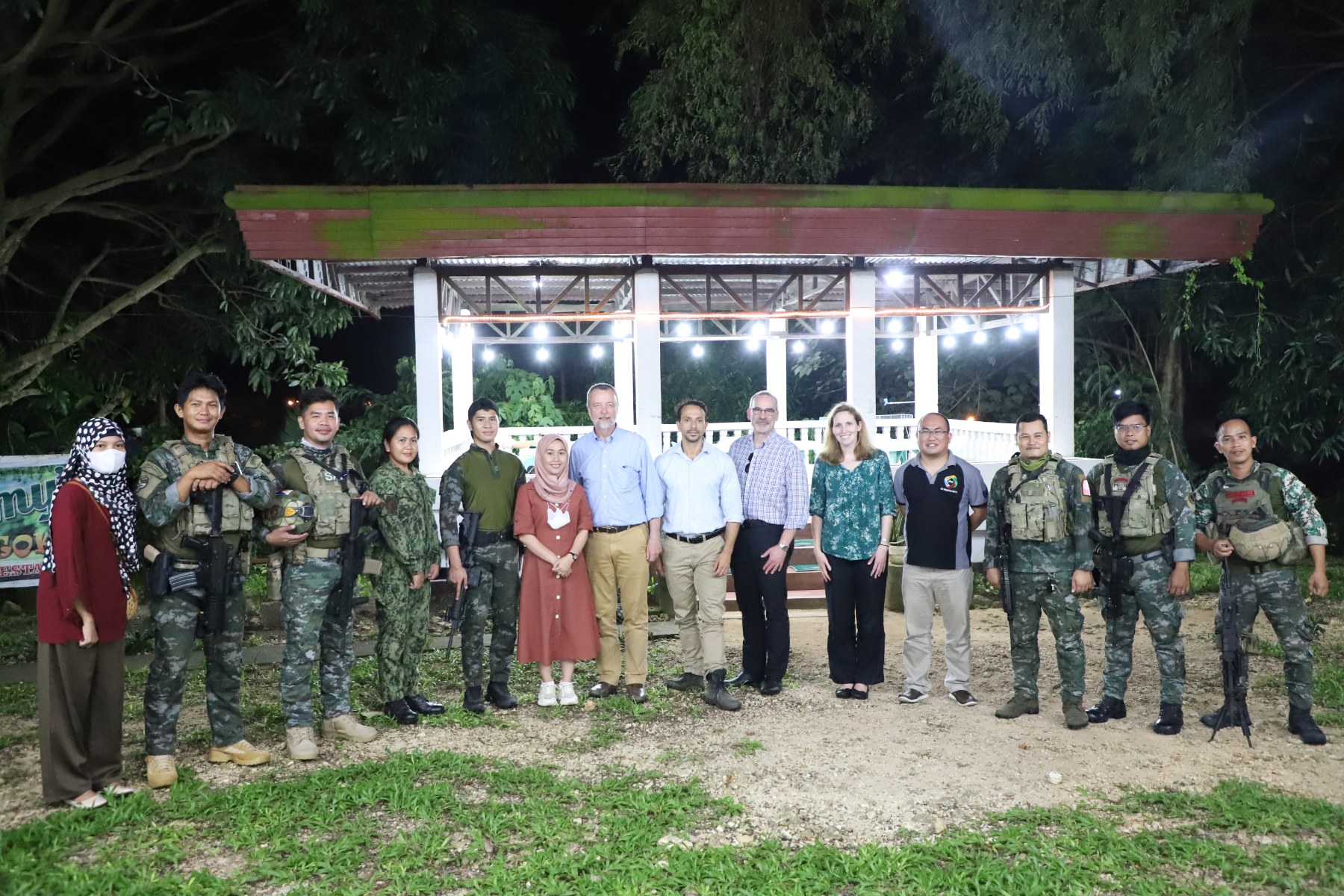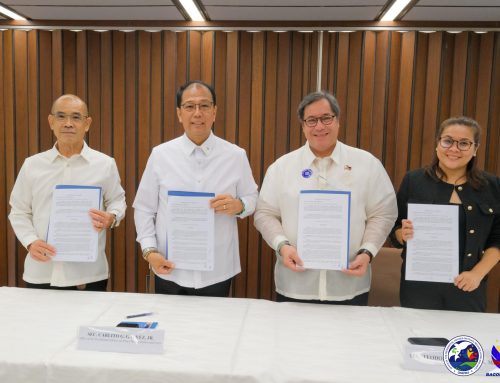COTABATO CITY— Peacebuilding efforts in the Bangsamoro received a major boost after a leading US-based peace institute committed to help strengthen and promote the culture of peace in the Bangsamoro.
During a visit to the city from February 3 to 4, officials of the United States Institute of Peace (USIP) vowed to work closely with the national and Bangsamoro governments in carrying out peacebuilding interventions in the region.
The USIP is known worldwide for its outstanding work which includes linking research, policy, training, analysis and direct action to support those who are working to build a more peaceful, inclusive world.
‘Renewed mindset,’ key to sustainable peace
In a meeting at the Bangsamoro Autonomous Region in Muslim Mindanao (BARMM) Ministry of Public Works, Minister Eduard Uy Guerra emphasized the importance of having a “renewed mindset” in sustaining the gains of peace in the region.
According to Guerra, the Comprehensive Agreement of the Bangsamoro (CAB) signed between the Government of the Philippines (GPH) and the Moro Islamic Liberation Front (MILF) is one of the most “highly coveted” milestones of the Bangsamoro peace process.
For USIP Visiting Expert Dr. Haroro Ingram, the establishment of the Bangsamoro government is the result of a long and winding journey to peace, the learnings of which should be highlighted through peace education.
Ingram said the USIP is very “much willing to help [in implementing] trailblazing peace programs” in partnership with local learning institutions such as the Mindanao State University Institute of Peace and Development.
He also stressed the need for higher learning institutions to be more actively involved in peace education as they have capacity to undertake research as well as conduct various extension programs.
Meanwhile, Dr. Andrew Wielder, USIP vice–president, stressed that it is crucial for stakeholders to implement practical and preventive approaches that seek to break the cycle of violence such as peace education and other long-term peacebuilding initiatives.
Wielder also emphasized that quality public education should encompass economic, political, social, cultural, moral and ethical issues, as he pointed out that this will be the key in transforming peoples’ mindsets when dealing with situations of conflict.
Kambolayoka: Strengtheing camaraderie between gov’t, MILF forces
Among the various activities that were attended by the USIP delegation was “Kambolayoka,” which means ” any ball friendship game.”
The sporting event was held at Camp Bilal in Munai Lanao del Norte, which is under the leadership of Abdullah Macapaar, a member of parliament of the Bangsamoro Transition Authority (BTA) and a MILF commander.
The event, organized by the USIP, in collaboration with Strategic Communications and Capacity Building, aimed to strengthen ties between the national government’s security forces and MILF members.
USIP Visiting Expert Dr. Haroro Ingram shared that the game was conceptualized right after a conversation between Col. Billy Dela Rosa of the 103rd Infantry Brigade and MP Macapaar.
“Peace is a full-time commitment that is [built] block by block, street by street, [and] person by person,” Ingram stressed.
The USIP official said that he looks also forward to working closely with Joint Peace and Security Teams (JPSTs), which are composed of members of the MILF-BIAF, Armed Forces of the Philippines and Philippine National Police.
The JPST is primarily tasked to ensure peace and security in areas mutually agreed upon by the national government and MILF.
Sustaining the dividends of peace
The USIP delegation also visited the JPST Operation Center on Friday to oversee the peacebuilding efforts being carried out by the peacekeeping team in the area.
In a meeting with the Joint Peace and Security Committee, OPAPRU Director Wendell Orbeso, head of the Joint Normalization Committee – GPH Secretariat and CAB Implementing Department, the group was briefed on how JPSTs are helping not only helping to secure communities but are also promoting the culture of peace in their areas of coverage.
Col. Joel Mamon, Head of the Combined Secretariat, GPH-CCCH/GPH-AHJAG explained that JPSTs likewise support the observance of the existing ceasefire agreements between the government and rebel groups, address and prevent hostilities; work on security arrangements for activities and personalities involved in the peace process; and support dispute resolution initiatives on the ground. ###
